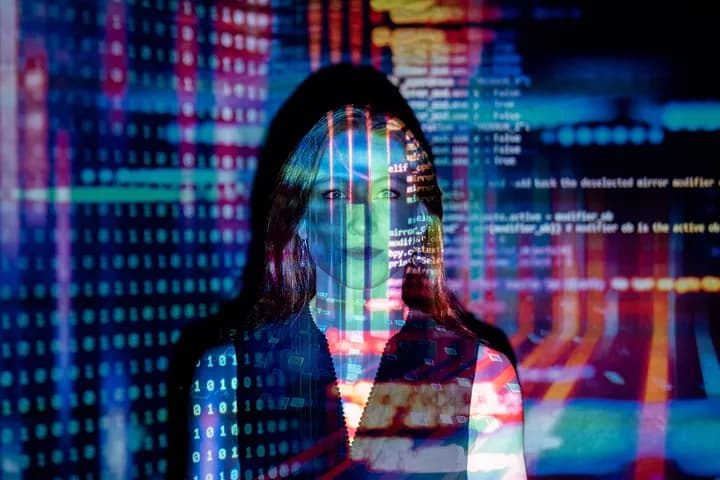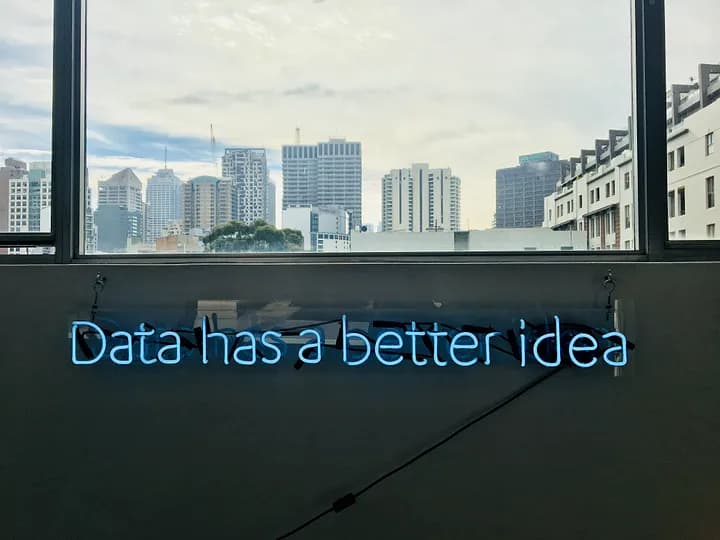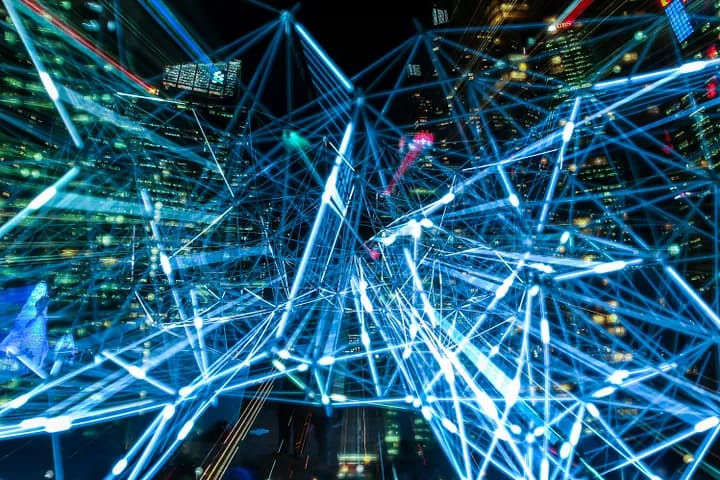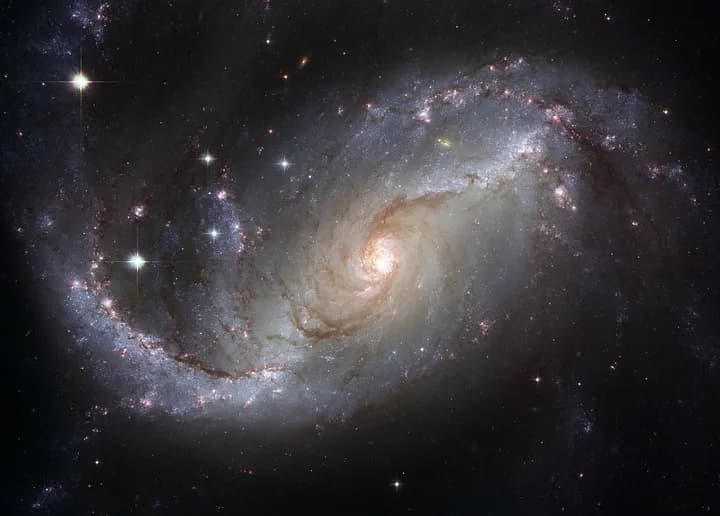How Dataism is Revolutionizing the Idea of the Individual

Here on the earth, we have been struggling to work with tools for billions of years. We had to think about how to use them, and then how to communicate with them. Our work was not as efficient as we wanted and could be. Now we are trying to design intelligent machines that can replace tools, to become a part of us, to work with us and even to help us make choices without thinking. A part of human history is about to change completely. Welcome to the age of Dataism.
Born in 1999, I was among the first cohort of youth to be guinea pigs for smartphones and social media. We were in school when we quickly started losing appreciation for the analog world of our past. Screens and connectivity took over. We became sick. All the things I was taught growing up — avoiding vanity, pursuing humility, being kind and empathetic, etc. — were at odds with what social media was encouraging us to do.
That was my first “yellow flag”. Had I been smarter and wiser I would have stopped back then, but I got caught up in technology.
We were relatively innocent back then. After all, we didn't yet have easily accessible AI. We were just trying to live our best life for social media to impress our friends, and champion our stories and accomplishments to the world.
But then, a few services won the attention of everyone and started applying AI. The machines put the Hook Model on steroids. They knew us better than we knew ourselves, and successfully hacked our brains to make us addicted to scrolling/tapping/swiping so we can watch and click on ads.
That was just the start.
A Big Data Revolution That's Transforming Decision Making

Technology's ability to collect and compile information is more advanced than ever before. As a result, technology is creating a new culture that is less personal.
What would happen if we made all of our data public — everything from wearables monitoring our biometrics, all the way to smartphones monitoring our location, our social media activity, and even our internet search history? Would such insights into our lives simply provide companies and politicians with greater power to invade our privacy and manipulate us by using our psychological profiles against us? A burgeoning new philosophy called Dataism doesn't think so. In fact, this trending ideology believes that liberating the flow of data is the supreme value of the universe, and that it could be the key to unleashing the greatest scientific revolution in the history of humanity.
What Is Dataism? First mentioned by David Brooks in his 2013 New York Times article “The Philosophy of Data”, Dataism is an ethical system that has been most heavily explored and popularized by renowned historian, Yuval Noah Harari. In his 2016 book Homo Deus, Harari described Dataism as a new form of religion that celebrates the growing importance of big data. Its core belief centers around the idea that the universe gives greater value and support to systems, individuals, and societies that contribute most heavily and efficiently to data processing
Dataism implies that all data is public, even personal data, to make the system work as a whole, which is a factor that's already showing resistance today. From browsing histories to shopping patterns, from tracking GPS for location-based services to studying your genomic information to predicting your physiological future and lifespan. And a lot, lot more.
Essentially, Dataism will usher in a highly customized sense of reality served to you by sensing and gathering unimaginable levels of personal, private and public information to influence your worldview. Powerful software networks driven by machine-to-machine communication (thanks to the rise of Internet of Things) is increasingly going to collect complex, sophisticated data points about us, our surroundings, our world, and more to a level we can't even imagine and certainly can't comprehend on our own.

All of this insurmountable data when fed into machine-learning software and artificial intelligence are going to help us gain acute insights into pretty much every facet of our individual and collective lives. This sentiment is at the heart of Dataism, that it will provide us with a brand new point of view, a more logical and analytical philosophical argument about how decisions will be (or perhaps should be) made in the future. According to its early proponents — which are Silicon Valley executives and tech oracles — Dataism argues the universe to be nothing but flow of data from one form to another (much like the law of conservation of energy) and that organisms are nothing but biochemical algorithms manifested in flesh and blood
Any individual with a curious passion would have the entire world's data at their fingertips, empowering every one of us to become an expert in any subject that inspires us. Expertise we can then share back into the data stream — a positive feedback loop spearheading progress for the entirety of humanity's knowledge. Such exponential gains represent a Dataism utopia. Unfortunately, our current incentives and economy also show us the tragic failures of this model. As Harari has pointed out, the rise of Dataism means that “humanism is now facing an existential challenge and the idea of ‘free will' is under threat.” Data was the most valuable resource on the planet — even more valuable than oil. Perhaps this is because data is ‘priceless': it represents understanding, and understanding represents control
The Dataist worldview is very attractive to politicians, business people and ordinary consumers because it offers groundbreaking technologies and immense new powers.
For all the fear of missing our privacy and our free choice, when consumers have to choose between keeping their privacy and having access to far superior healthcare — most will choose health.
For scholars and intellectuals, Dataism promises to provide the scientific Holy Grail that has eluded us for centuries: a single overarching theory that unifies all the scientific disciplines from musicology through economics, all the way to biology.
According to Dataism, Beethoven's Fifth Symphony, a stock-exchange bubble and the flu virus are just three patterns of dataflow that can be analysed using the same basic concepts and tools. This idea is extremely attractive. It gives all scientists a common language, builds bridges over academic rifts and easily exports insights across disciplinary borders. Of course, like previous all-encompassing dogmas, Dataism, too, may be founded on a misunderstanding of life. In particular, Dataism has no answer to the notorious “hard problem of consciousness”.
At present we are very far from explaining consciousness in terms of data-processing. Why is it that when billions of neurons in the brain fire particular signals to one another, a subjective feeling of love or fear or anger appears? We don't have a clue. But even if Dataism is wrong about life, it may still conquer the world.
All our words and actions are, in fact, part of a great dataflow enveloping the world, and only when individual experiences are connected to this dataflow, data algorithms will discover their meanings and guide us. Data is omnipresent, and without Data there can be no way to master the Force. With it we are powerful and invincible; without it we are vulnerable and certain to diminish. Through the wonders of machine learning and breakthroughs in artificial intelligence, in the future data is going to dictate our lives unlike any other divine doctrine or man-made religion we've ever known. No longer will we study horoscopes, astrological signs, consult holy books and holy men, if dataism has its way — and it will. We will live our lives under a different code, one that'll be less forgiving, emotionless, devoid of personal prejudice or bias. A far more analytical life, where decision-making is based completely based on cold hard data alone.

In conclusion, I want to leave my readers with a question. If humankind is indeed a single data-processing system, what is its output? Dataists would say that its output will be the creation of a new and even more efficient data-processing system, called the Internet-of-All-Things. Once this mission is accomplished, Homo sapiens will vanish. Dataism is neither liberal nor humanist. It should be emphasized, however, that Dataism isn't anti-humanist. It has nothing against human experiences. It just doesn't think they are intrinsically valuable. Like capitalism, Dataism too began as a neutral scientific theory, but is now mutating into a religion that claims to determine right and wrong.
Dataism, human experiences are not sacred and Homo sapiens aren't the apex of creation or a precursor of some future Homo Deus. Humans are merely tools for creating the Internet-of-All-Things, which may eventually spread out from planet Earth to cover the whole galaxy and even the whole universe. Perhaps in your own lifetime, your dog may have a Facebook or Twitter account of his own — maybe with more Likes and followers than you.
Thanks for reading!
If you liked this article, feel free to checkout Seeking Within— a weekly newsletter covering a wide range of topics exploring the belief that Most Answers We Seek Lie Within Us.
Want to connect with me? Shoot me a message via Email, LinkedIn, or Twitter!